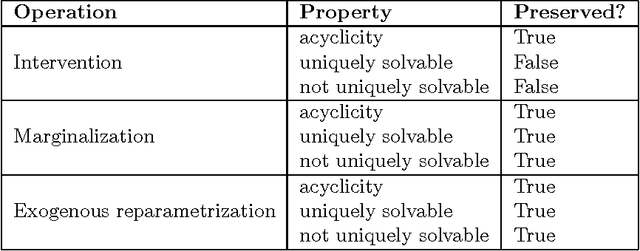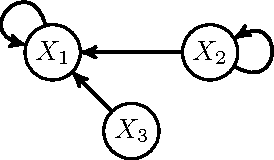Theoretical Aspects of Cyclic Structural Causal Models
Paper and Code
Aug 05, 2018



Structural causal models (SCMs), also known as (non-parametric) structural equation models (SEMs), are widely used for causal modeling purposes. A large body of theoretical results is available for the special case in which cycles are absent (i.e., acyclic SCMs, also known as recursive SEMs). However, in many application domains cycles are abundantly present, for example in the form of feedback loops. In this paper, we provide a general and rigorous theory of cyclic SCMs. The paper consists of two parts: the first part gives a rigorous treatment of structural causal models, dealing with measure-theoretic and other complications that arise in the presence of cycles. In contrast with the acyclic case, in cyclic SCMs solutions may no longer exist, or if they exist, they may no longer be unique, or even measurable in general. We give several sufficient and necessary conditions for the existence of (unique) measurable solutions. We show how causal reasoning proceeds in these models and how this differs from the acyclic case. Moreover, we give an overview of the Markov properties that hold for cyclic SCMs. In the second part, we address the question of how one can marginalize an SCM (possibly with cycles) to a subset of the endogenous variables. We show that under a certain condition, one can effectively remove a subset of the endogenous variables from the model, leading to a more parsimonious marginal SCM that preserves the causal and counterfactual semantics of the original SCM on the remaining variables. Moreover, we show how the marginalization relates to the latent projection and to latent confounders, i.e. latent common causes.
 Add to Chrome
Add to Chrome Add to Firefox
Add to Firefox Add to Edge
Add to Edge